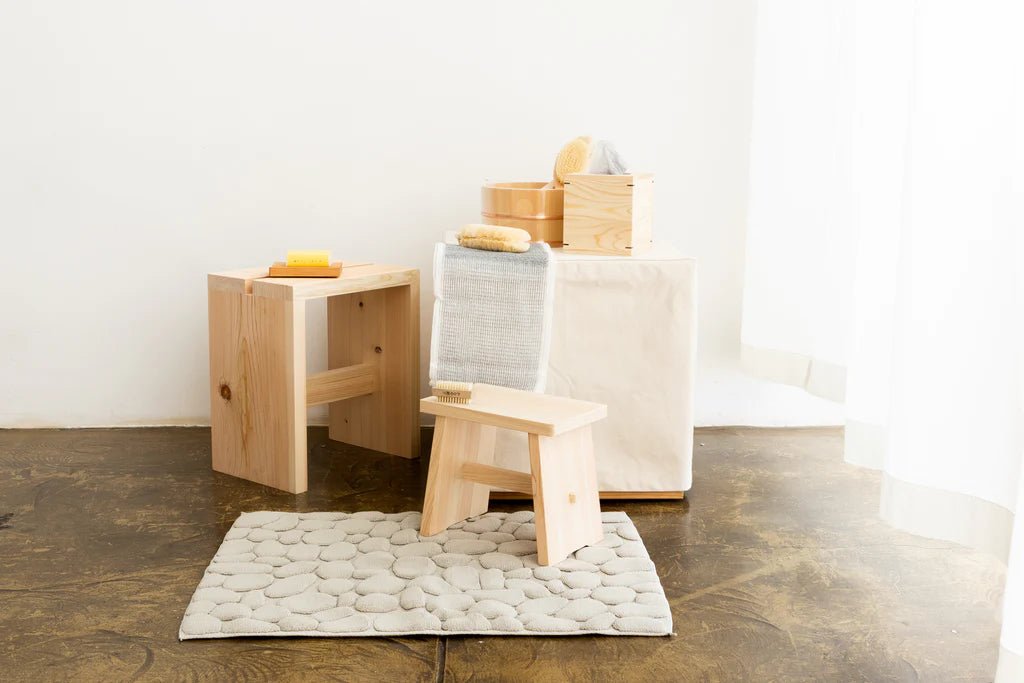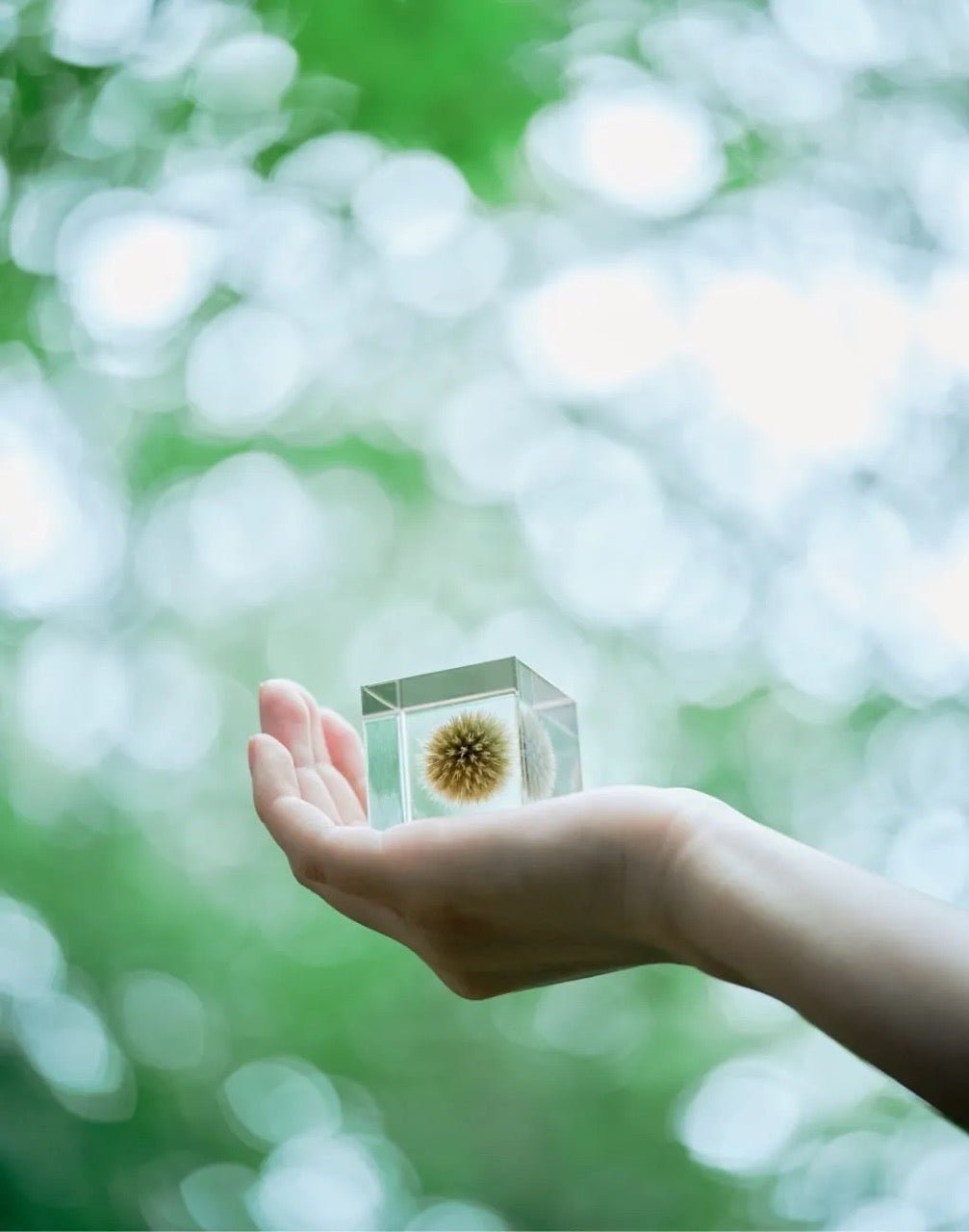Everyday moments are precious. Our daily routines and most often used objects should be viewed as relationships to be cultivated and cared for with affection. The Japanese culture around bathing is the perfect metaphor for this attitude. Rather than a daily chore, taking a bath becomes a chance for reflection, connection with nature, and absolute sensory indulgence.
Instead of the American practice of bath or shower, in Japan the answer is always bath and shower. Showering always comes first - the time for deep scrubbing to get rid of any dirt or grime. Then comes a more spiritual cleansing - a full submersion in the tub. Rather than soaking to get rid of physical dirt, a daily bath is intended to bring emotional comfort and deep relaxation, cleansing yourself from the exhausting work day and refreshing your mind for the day to come.
We recommend our Kamenoko Body Scrubber to get off every speck of dirt before you soak in the tub!
Japan has preserved a complex bathing culture for thousands of years, likely inspired by the volcanic hot springs that flow through most of the islands. Both Shintoism, the native religion of Japan, and Zen Buddhism associate water with purification, adding a spiritual justification for long baths. Anthropologist Scott Clark wrote, “to take a bath in Japan with an understanding of the event is to experience something Japanese. It is to immerse oneself in culture as well as water.”
Sentō

Sentō, or public bath houses, served as centers of Japanese community for centuries. Slight variations between each bath house represent unique regional customs and values. In the past 50 years, public bathhouse attendance has dwindled, causing many to permanently close their doors. As an illustration of how important bath houses are to Japanese culture, the Japanese government subsidizes the remaining sentō in an effort to preserve their cultural heritage. Public baths will feature personal showers to make sure patrons are fully clean before entering the bath, but you might be surprised to see a small stool underneath each shower. This stool brings an element of relaxation to even the most functional part of this bathing ritual.
Bring the spirit of a sentō to your bathroom with a fragrant hinoki stool in your shower.
Onsen

Onsen are deeply connected to nature. To qualify as an onsen the bath's water must be sourced from a natural hot spring and contain nineteen different minerals and include certain levels of hydrogen ion, fluorine ion, and sulfur. These qualifications come from the Onsen Law enacted by the Japanese government in 1948 - another example of the strong emphasis placed on preserving Japanese bathing culture.
Bring an onsen to your bathroom with our @Aroma essential oils and hinoki diffuser capturing the scent of Japanese botanical air.
Ofuro

Ofuro refers to the bathtub inside of your own home. Unlike American bathtubs, ofuro are generally shorter yet deep enough to remain fully submerged while sitting straight up. Like an onsen or sento, it's expected that you shower completely before entering the ofuro, making it sanitary for multiple family members to enjoy the same bathwater. The order of bathers in a family signals a hierarchy - with the most senior family member enjoying the first bath and the hottest water. Many families have adopted the green practice of recycling their bathwater for laundry or household cleaning, turning the luxurious practice of bathing into part of a sustainable lifestyle.
 Add another layer of relaxation to your own ofuro with a burning natural rice bran candle and candle stand.
Add another layer of relaxation to your own ofuro with a burning natural rice bran candle and candle stand.
Hinoki

700 year old hinoki tree
No matter what type of bath you find yourself in - sento, onsen, or ofuro - you'll be sure to see plenty of hinoki wood products. Hinoki, or Japanese cypress, produces a fragrant wood full of endless healing properties. The wood has a scent reminiscent of lemon - a fragrance so delightful it has been transformed into many incense and perfumes. Despite exposure to moisture, hinoki wood will not rot. It also has antibacterial qualities and has tremendous relaxing effects such as calming the autonomic nervous system, increasing concentration, reducing pulse disturbance, and promoting better sleep. All of these properties make hinoki a natural bath-companion.
Add a fragrant brush that won't accumulate mold to you bathroom.
Binchotan Charcoal
Finally, binchotan charcoal plays an important role in Japanese bath culture. Binchotan charcoal refers to activated charcoal from ubame, or Japanese oak. It has been used for hundreds of years both for cleaning and cooking. Branches of ubame oaks are burned in a kiln at extremely high temperatures, resulting in the highest grade charcoal available. Because the charcoal is highly absorbent, it is excellent at drawing out impurities. When used on the skin, binchotan charcoal is known to detoxify, exfoliate, moisturize, and cleanse. Enjoy these properties with our many binchotan-infused bath accompaniments.
Browse our full selection of bath accessories and products on our online store, and bring Japanese bath culture, and the relaxation it brings, to your home and daily life.










